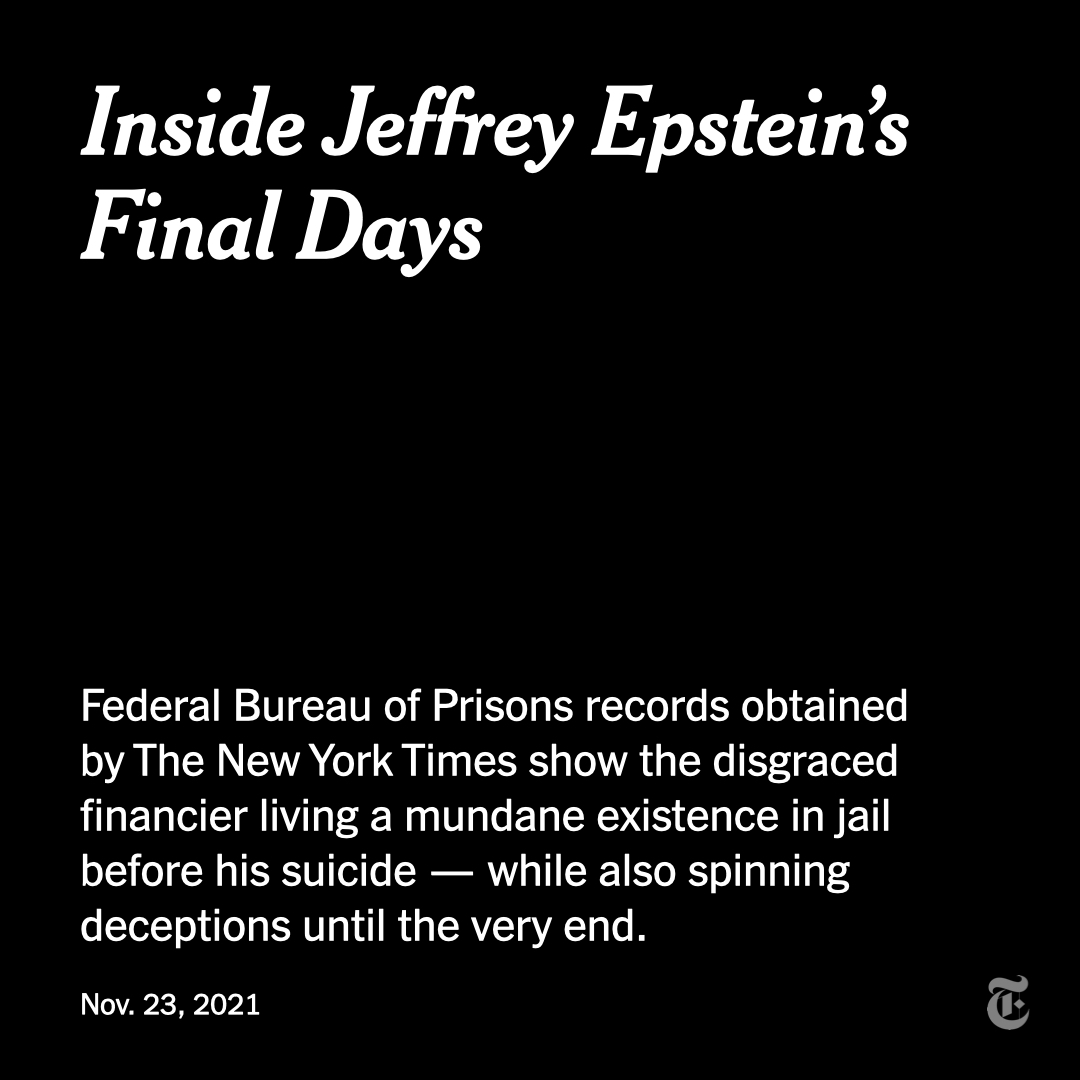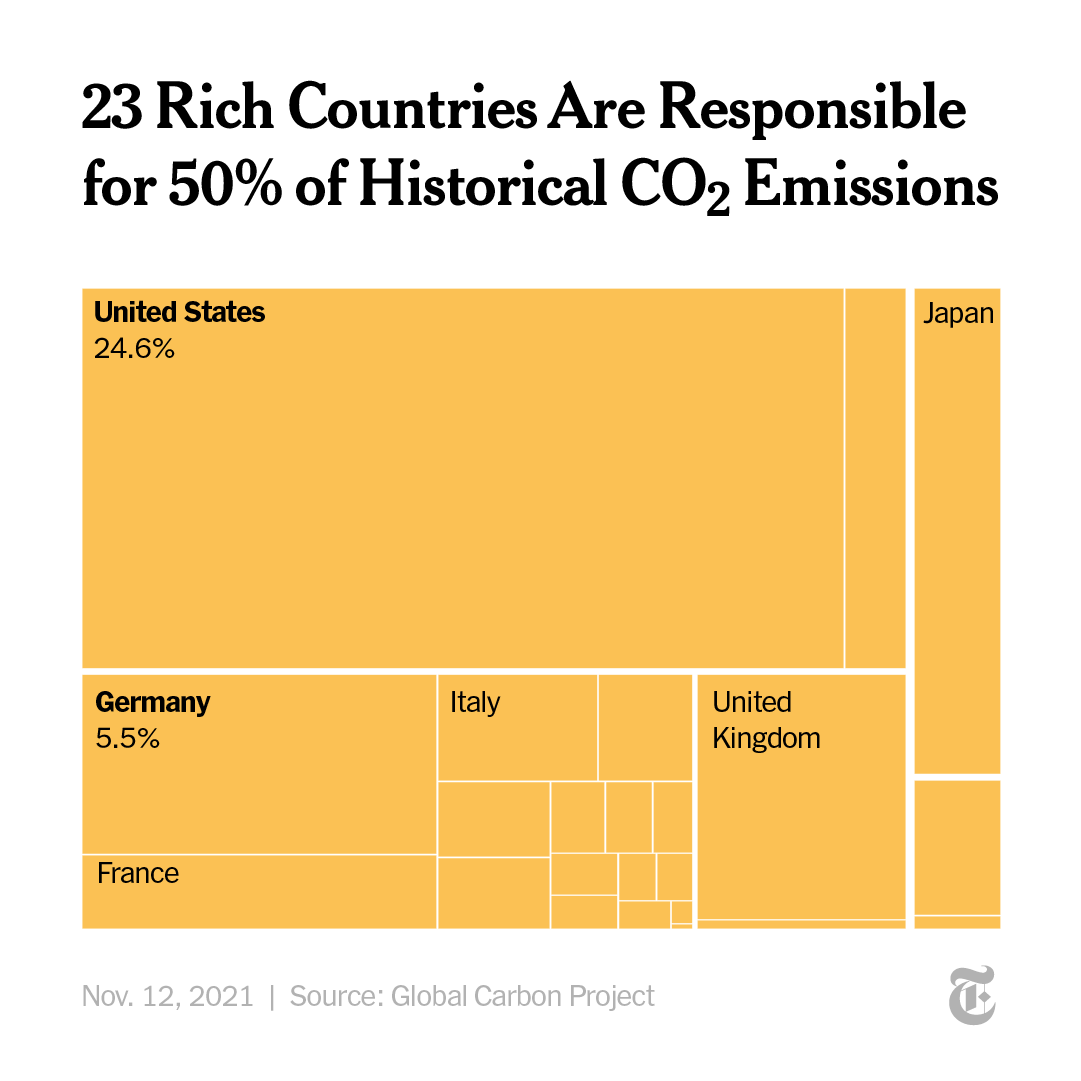
Exclusive: Newly obtained jail records do not support the conspiracy theory that Jeffrey Epstein’s death was not a suicide.
They provide the most detailed look yet at his final days — and show mistake after mistake made by jail officials. nyti.ms/3FEBdd4
They provide the most detailed look yet at his final days — and show mistake after mistake made by jail officials. nyti.ms/3FEBdd4

The records — which we obtained from the Federal Bureau of Prisons after filing a Freedom of Information Act lawsuit — show Epstein repeatedly telling correctional officers, counselors and inmates he had much to live for, while also hinting that he was increasingly despondent. 

About two months after Epstein’s death, an inmate emailed the psychology department about a conversation he had with a man whose cell had been next to Epstein’s.
The inmate had heard Epstein “tearing up his sheet before committing suicide," he wrote in the email.
The inmate had heard Epstein “tearing up his sheet before committing suicide," he wrote in the email.

Beyond legal and administrative matters, this collection of records provides the most detailed look yet at Epstein's final days, offering something often missing from public accounts: his voice.
Read more here: nyti.ms/3FEBdd4
Read more here: nyti.ms/3FEBdd4
Jeffrey Epstein’s suicide left many unanswered questions about his life in jail. The prison records we obtained contain vivid details about his last days — including his own words.
Here's some of what he said. nyti.ms/3xglRZj
Here's some of what he said. nyti.ms/3xglRZj
After Epstein’s suicide, officials from the Bureau of Prisons prepared a report exploring his incarceration and death. Read the full document here. nyti.ms/3l4biU9
• • •
Missing some Tweet in this thread? You can try to
force a refresh











